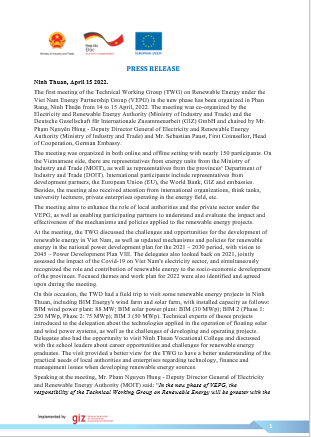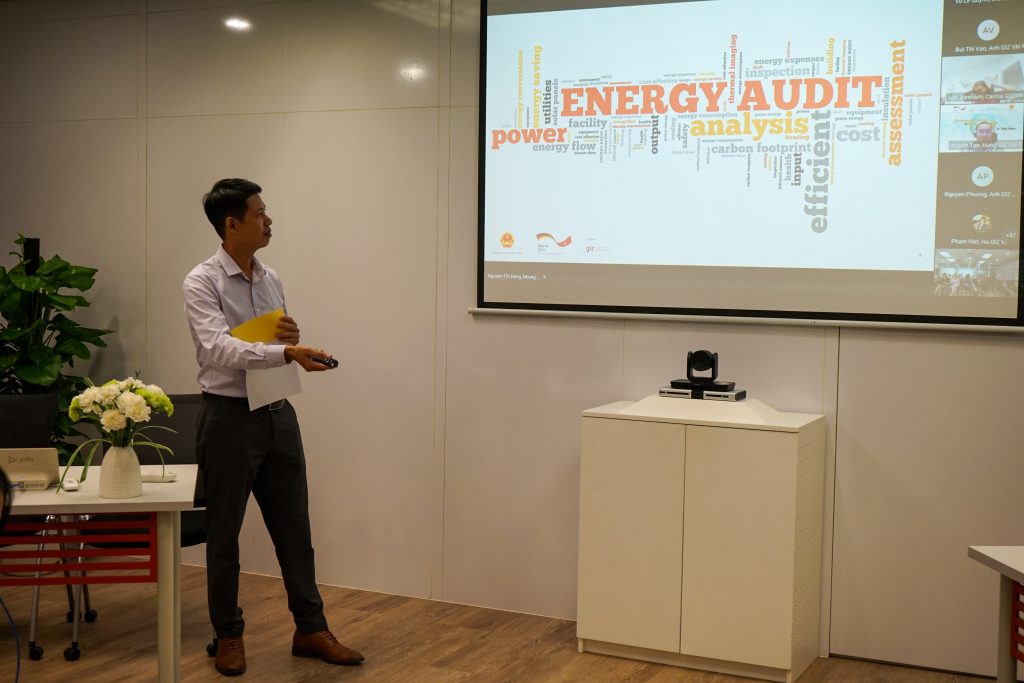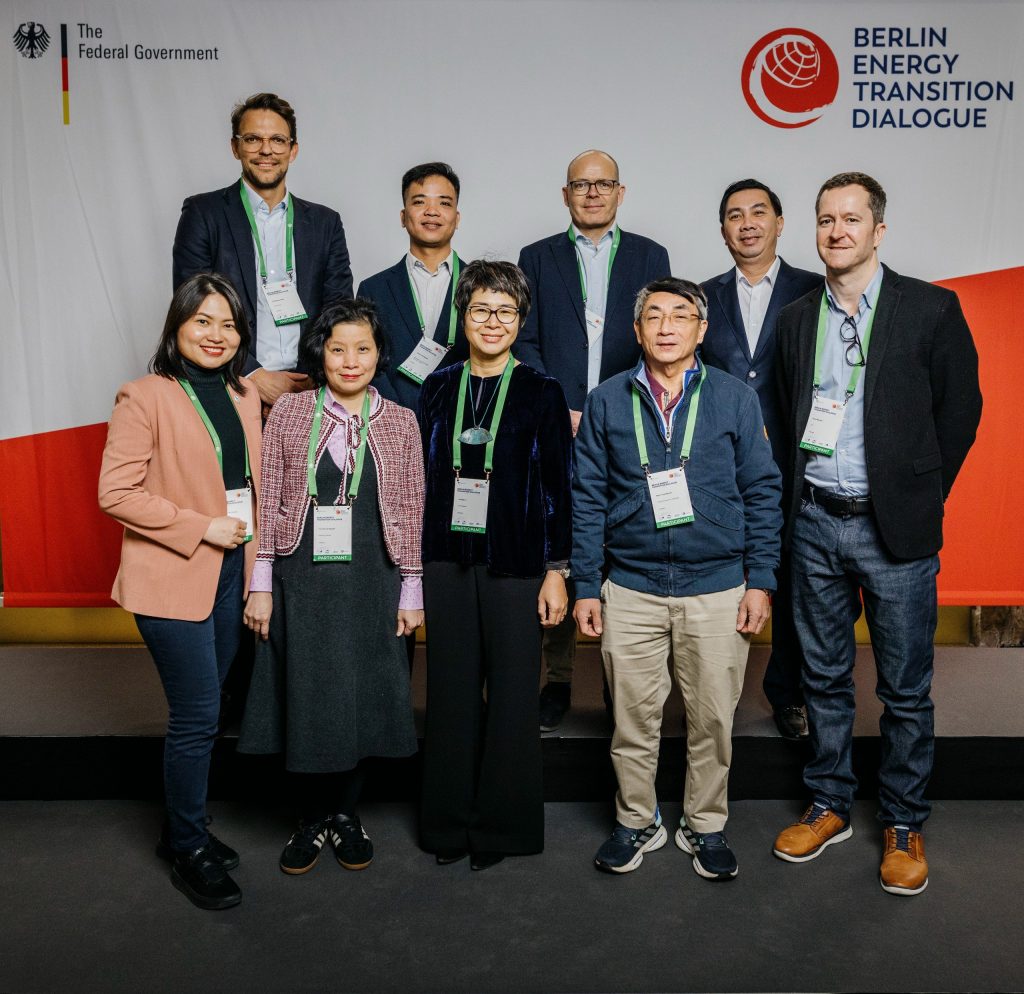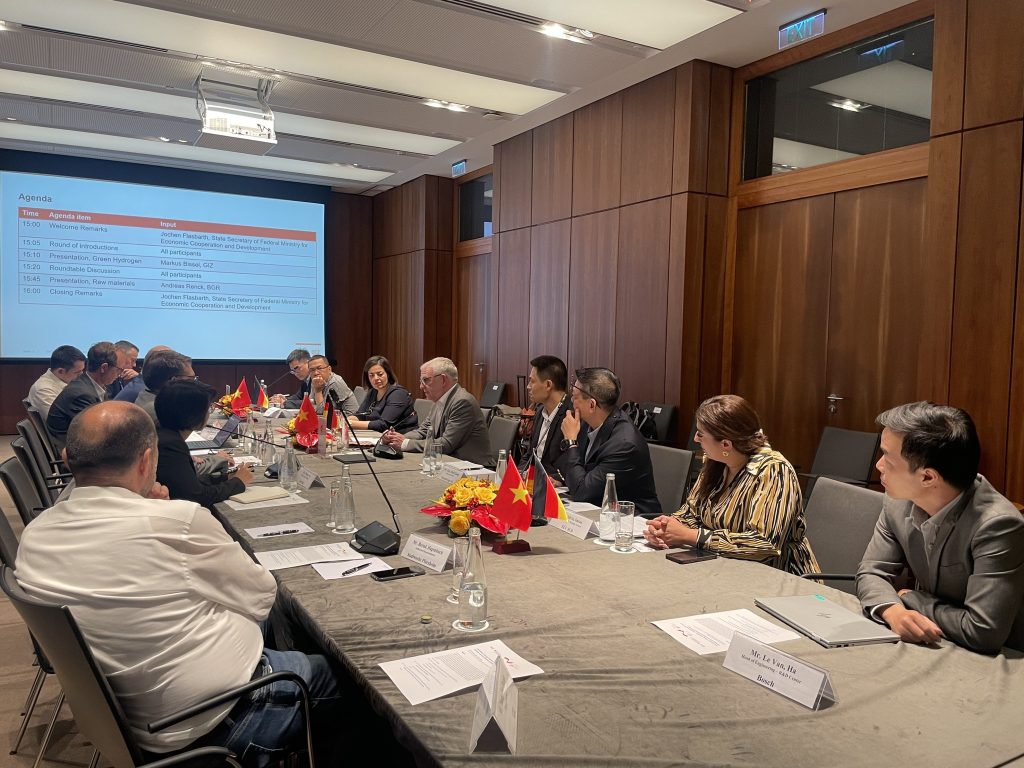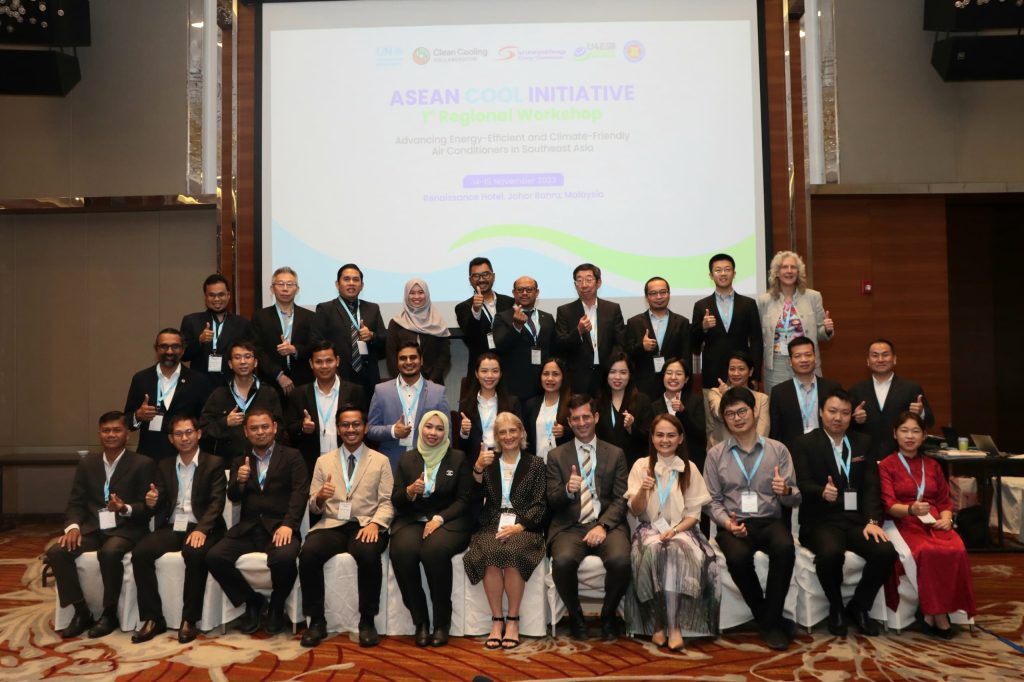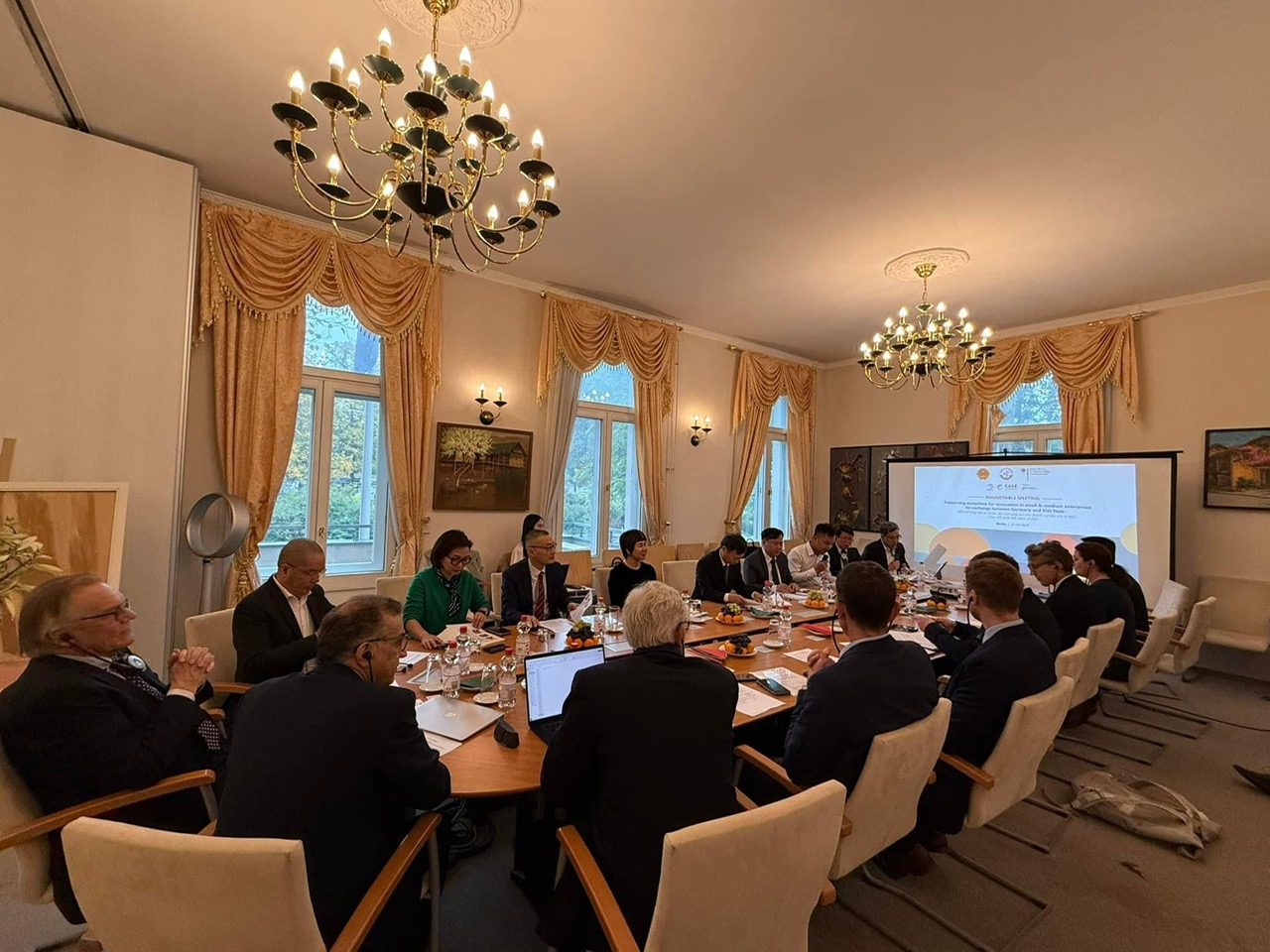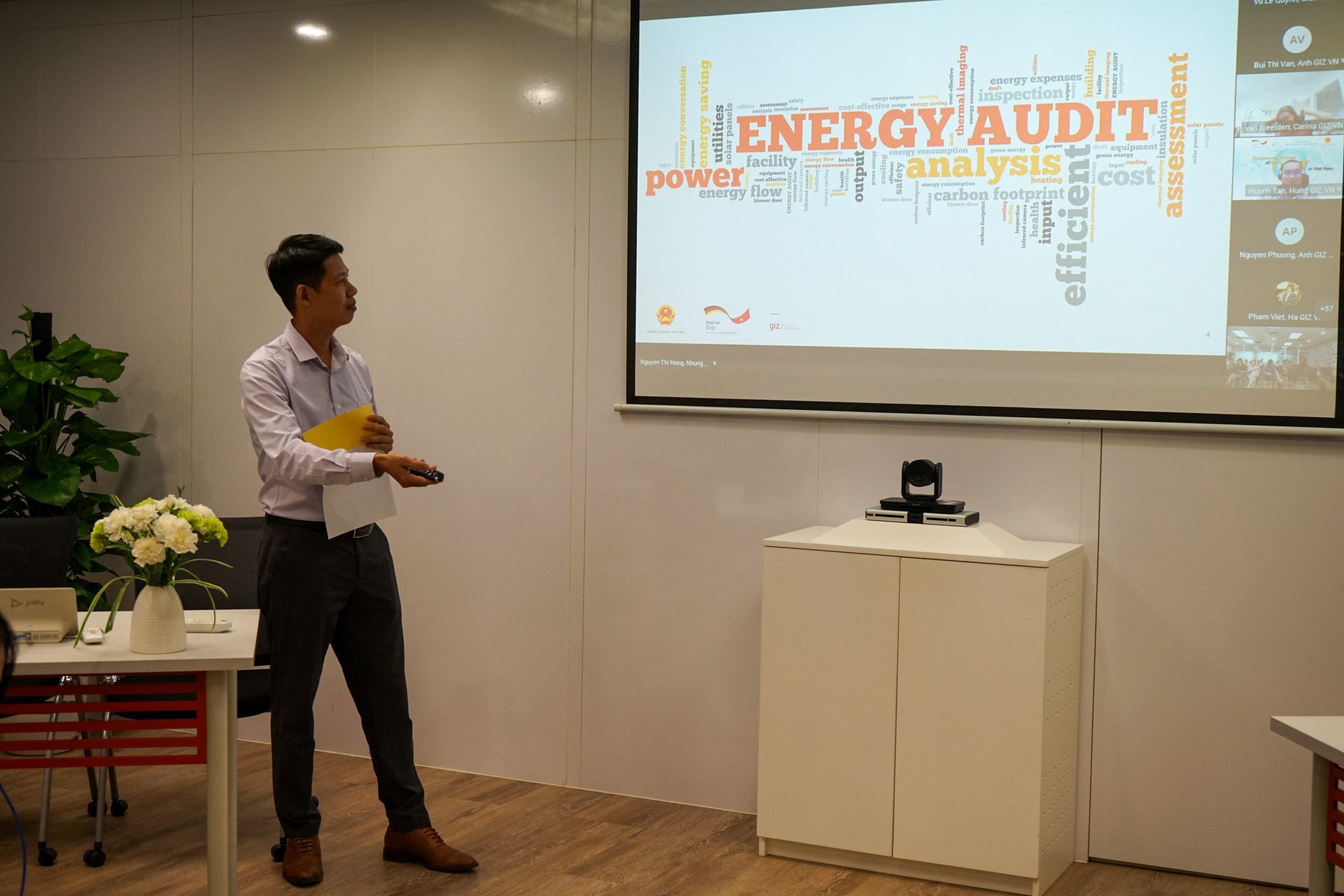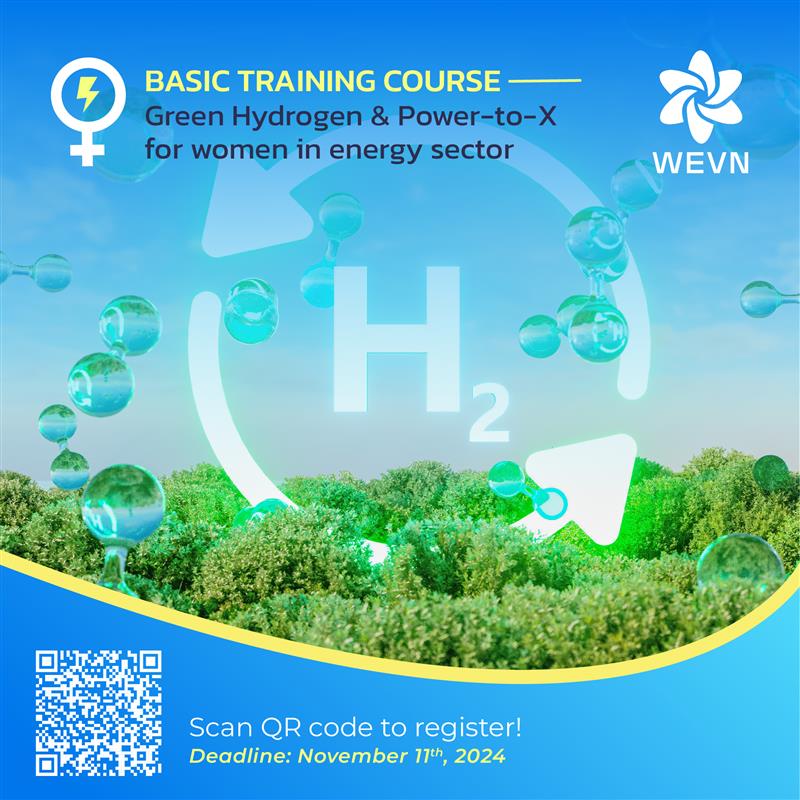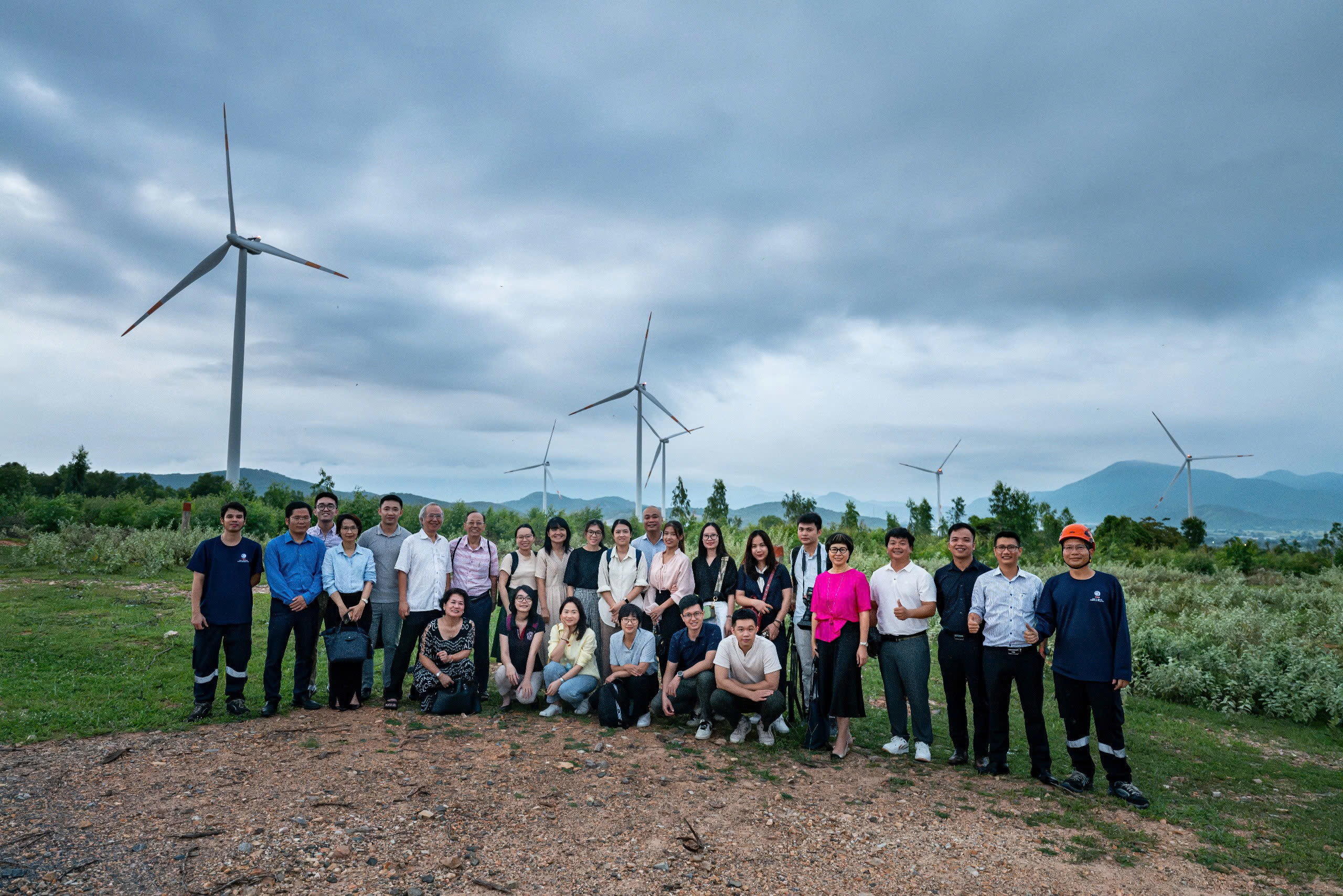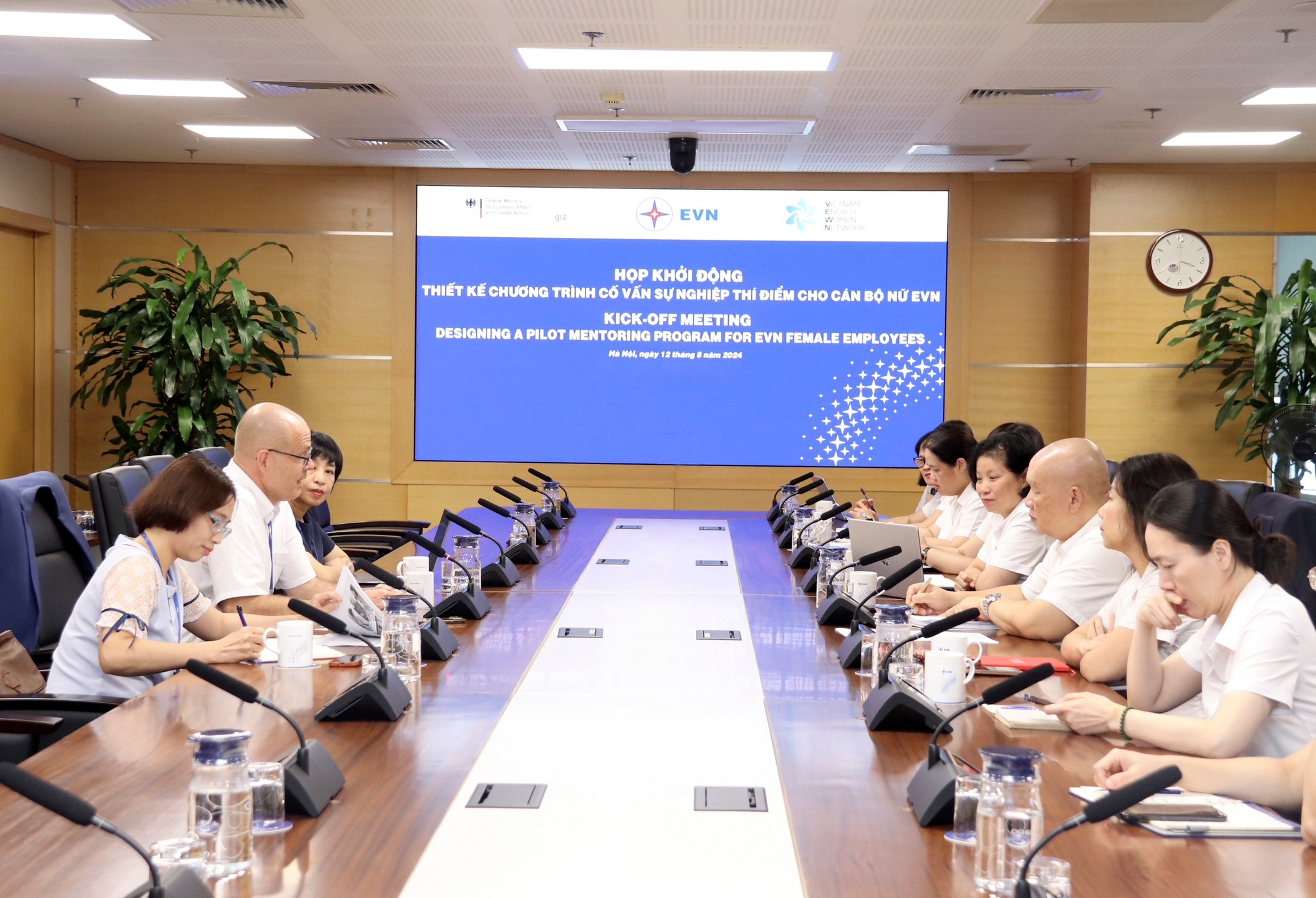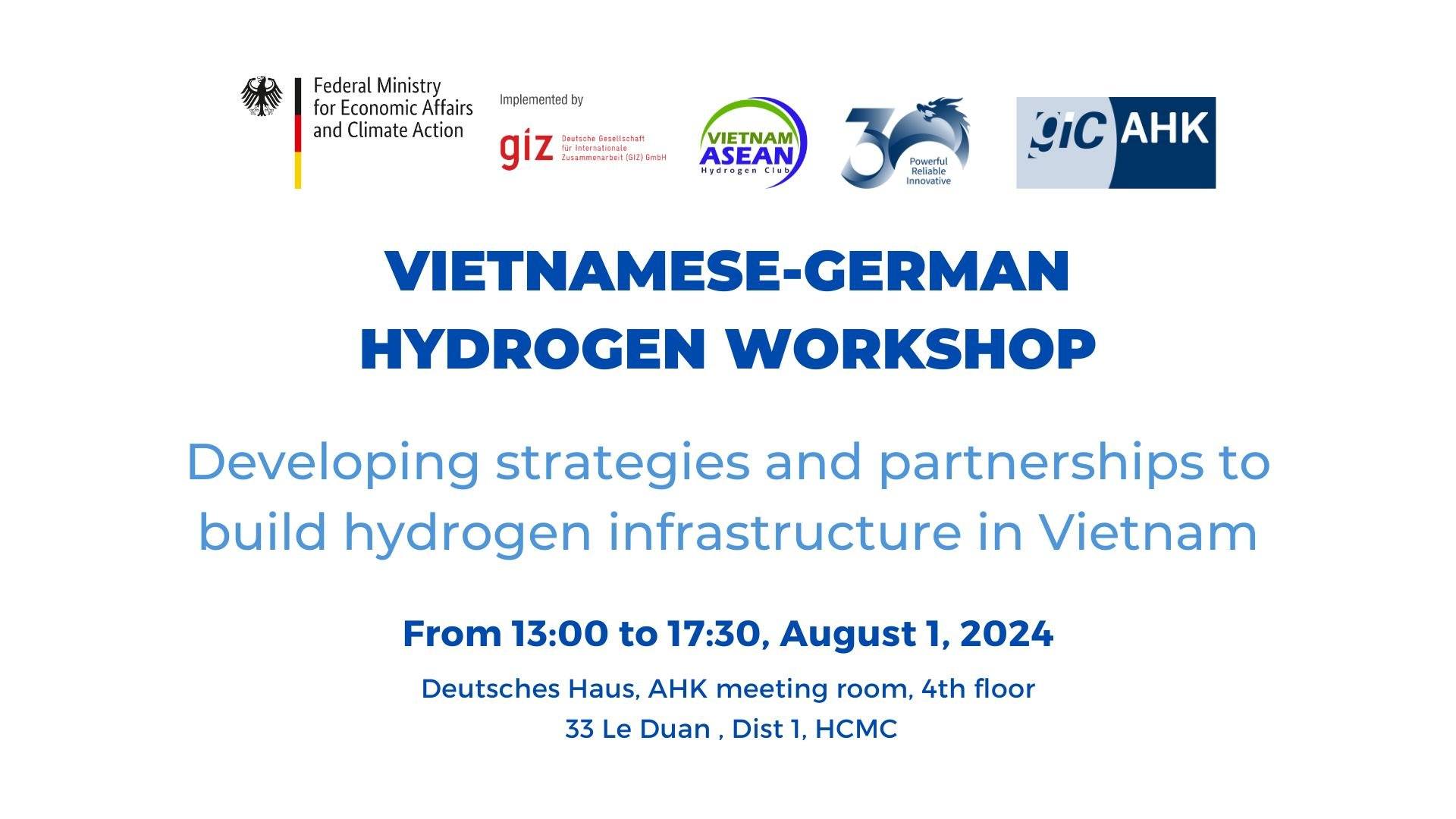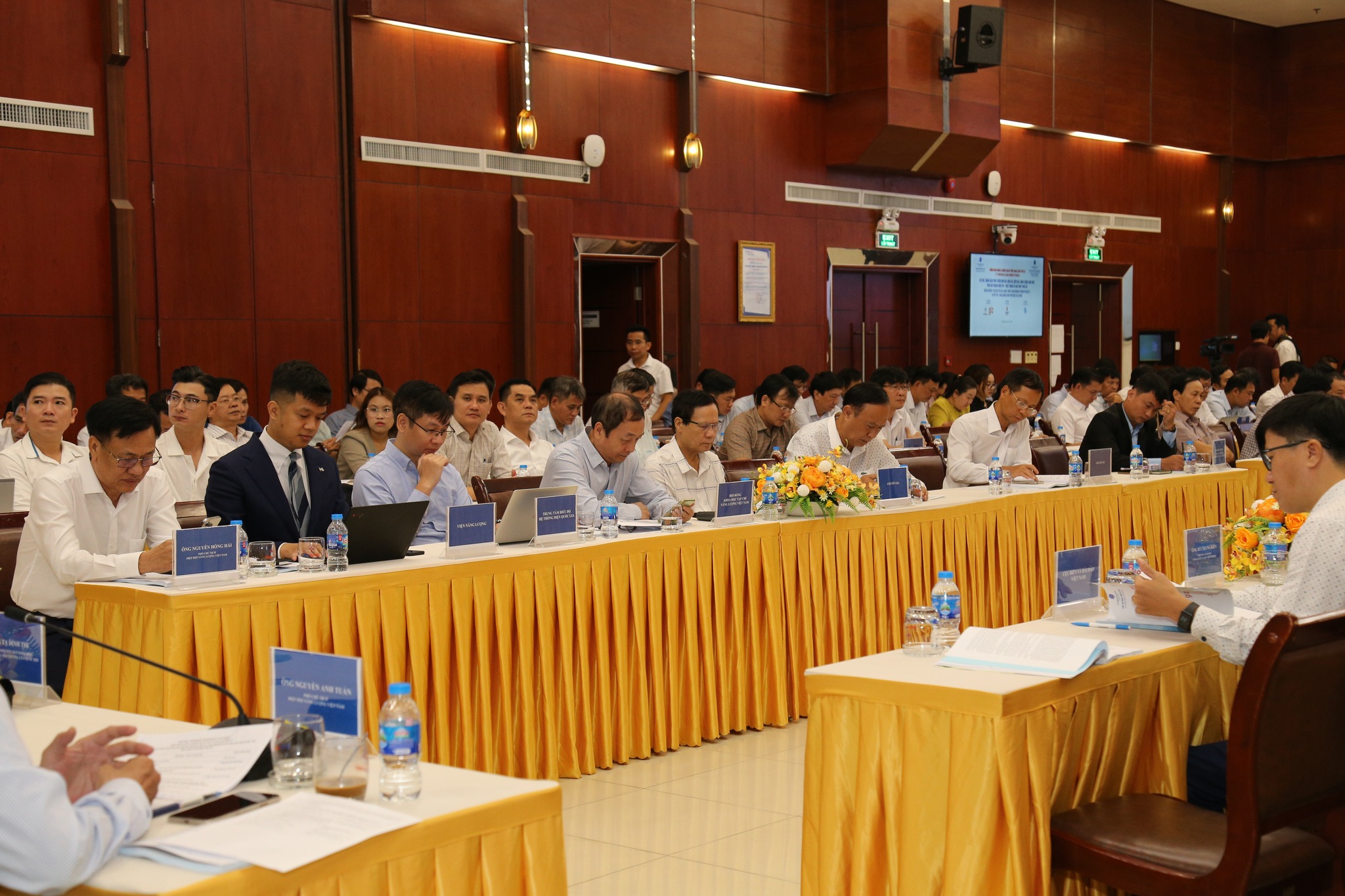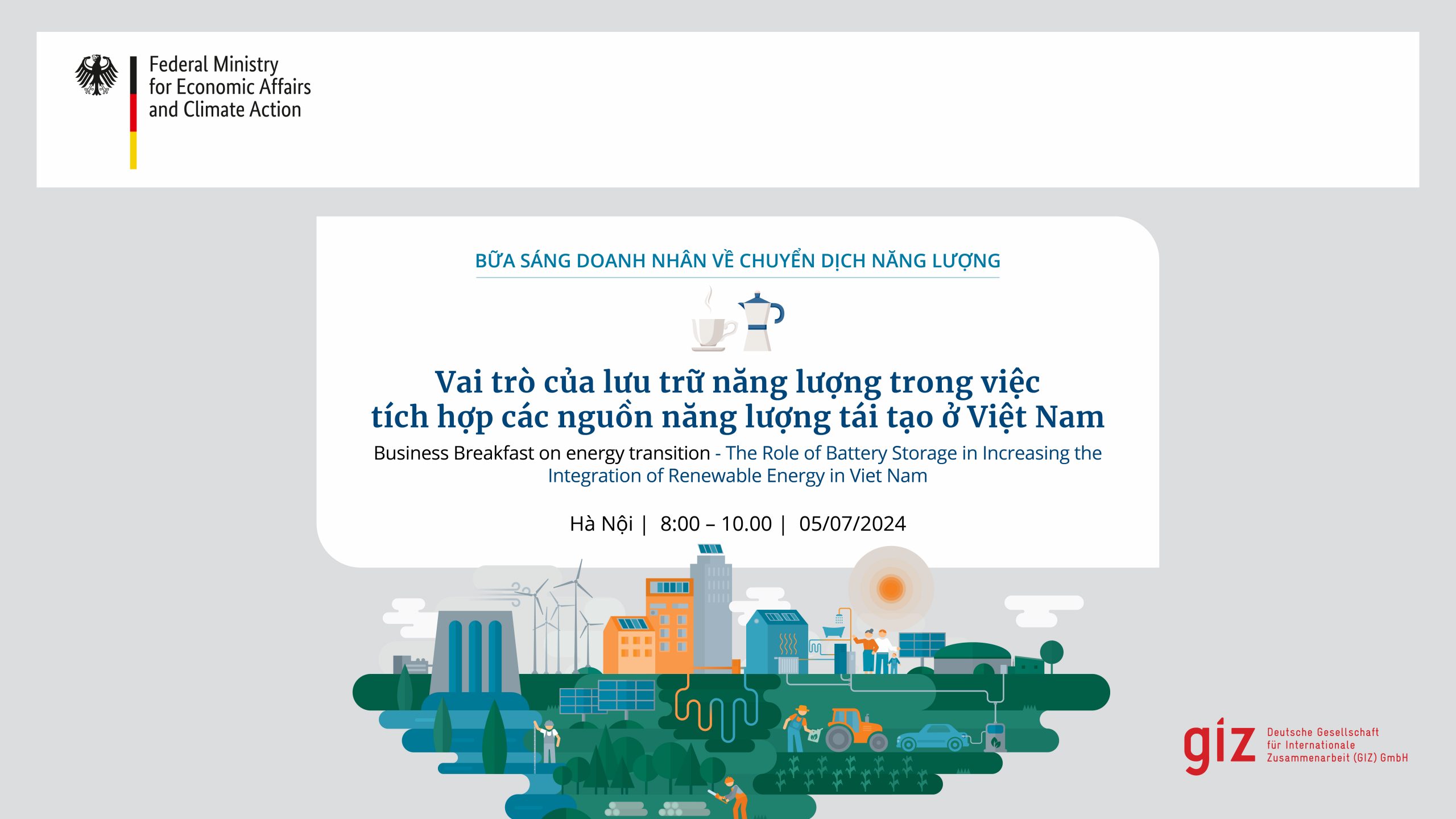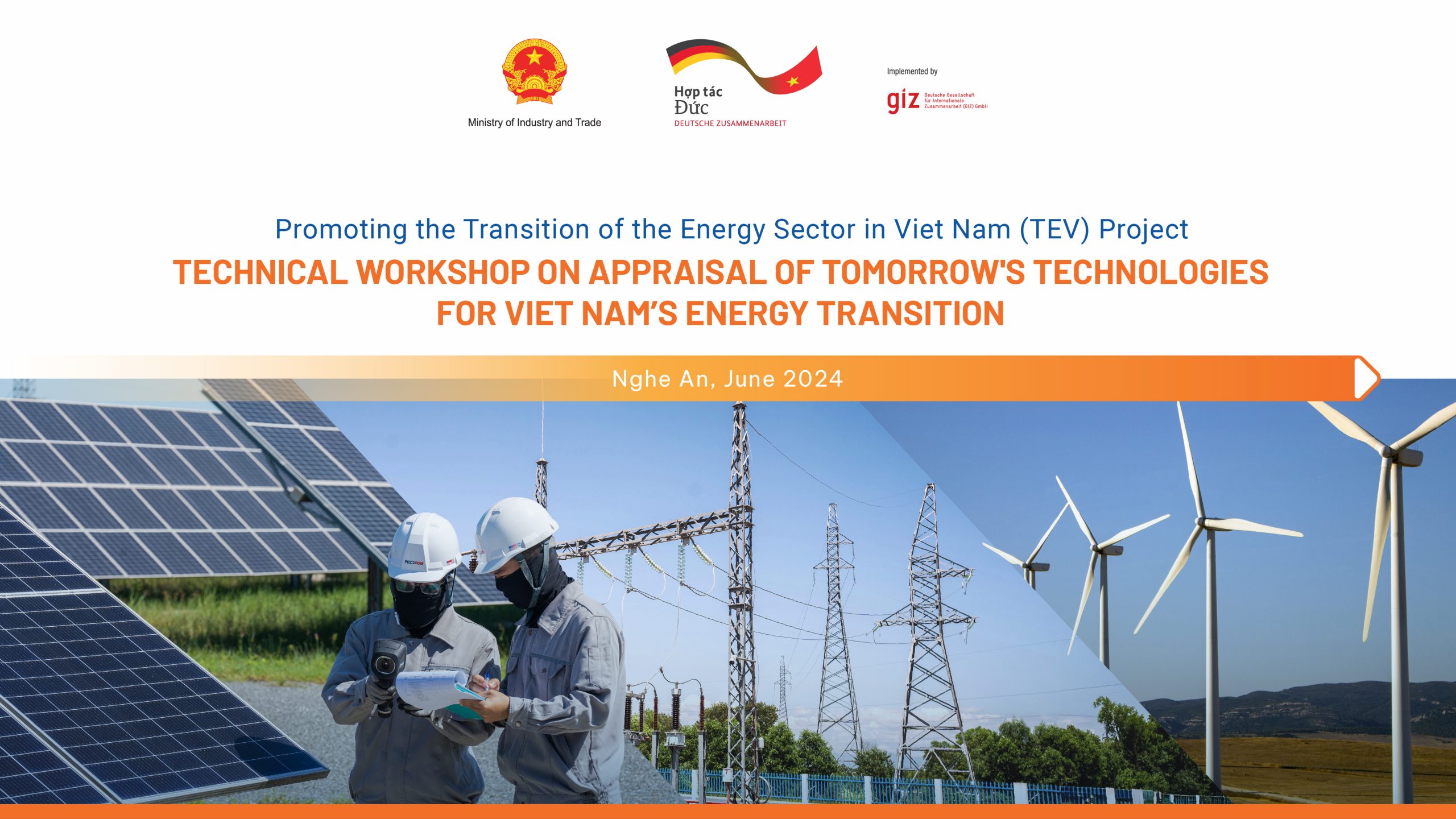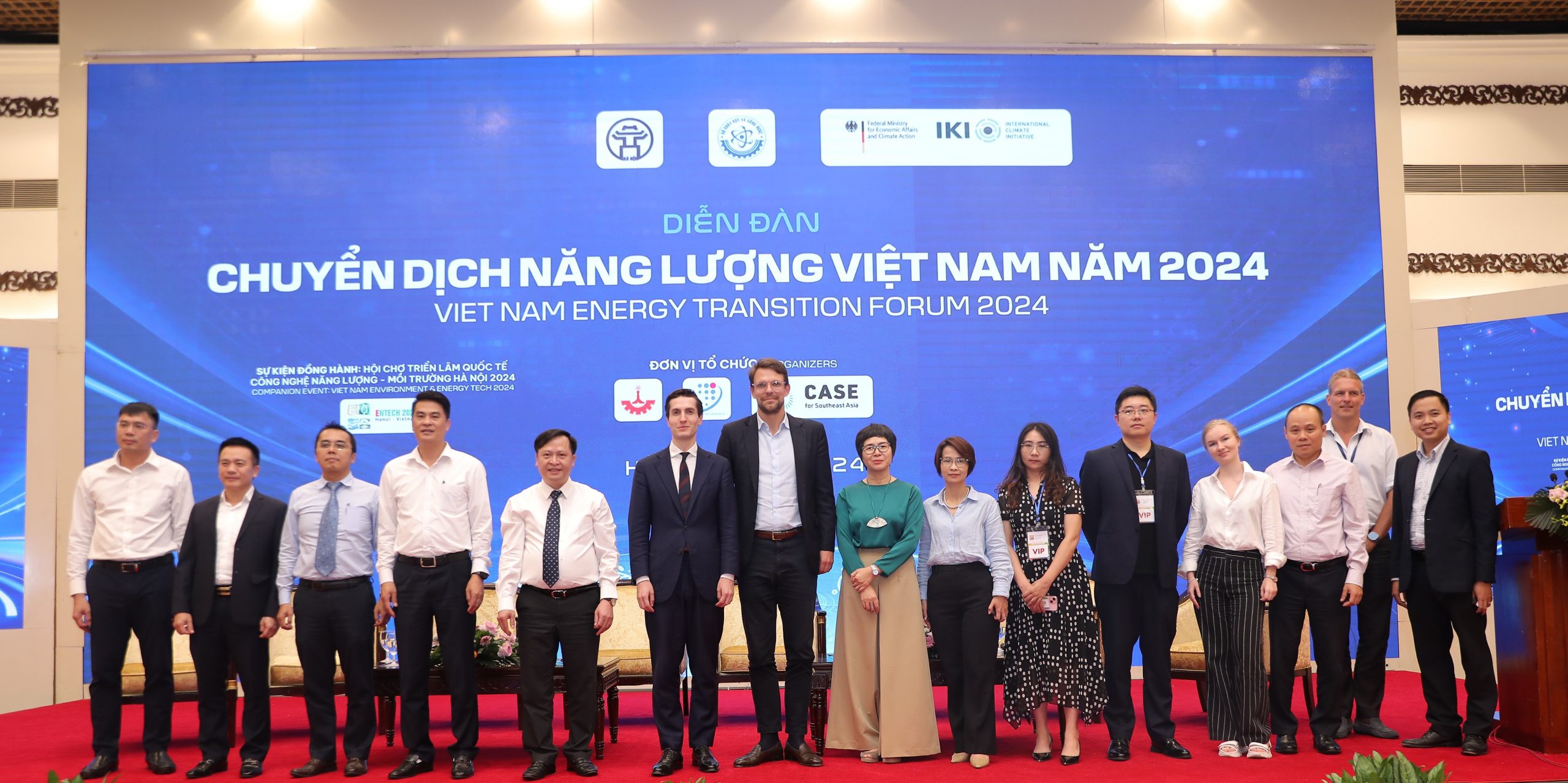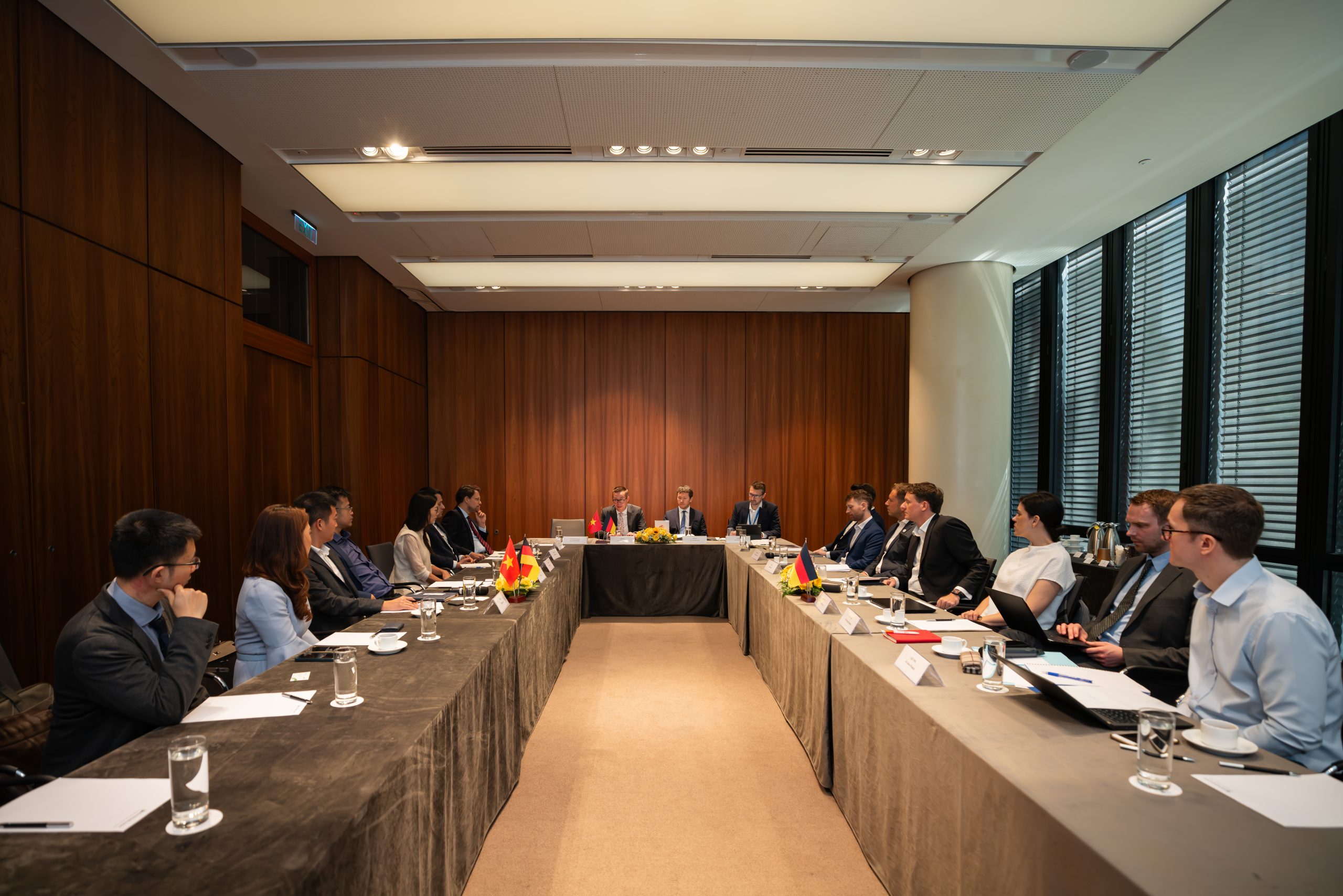Ninh Thuan, April 15 2022.
The first meeting of the Technical Working Group (TWG) on Renewable Energy under the Viet Nam Energy Partnership Group (VEPG) in the new phase has been organized in Phan Rang, Ninh Thu?n from 14 to 15 April, 2022. The meeting was co-organized by the Electricity and Renewable Energy Authority (Ministry of Industry and Trade) and the Deutsche Gesellschaft für Internationale Zusammenarbeit (GIZ) GmbH and chaired by Mr. Ph?m Nguyên Hùng – Deputy Director General of Electricity and Renewable Energy Authority (Ministry of Industry and Trade) and Mr. Sebastian Paust, First Counsellor, Head of Cooperation, German Embassy.
The meeting was organized in both online and offline setting with nearly 150 participants. On the Vietnamese side, there are representatives from energy units from the Ministry of Industry and Trade (MOIT), as well as representatives from the provinces‘ Department of Industry and Trade (DOIT). International participants include representatives from development partners, the European Union (EU), the World Bank, GIZ and embassies. Besides, the meeting also received attention from international organizations, think tanks, university lecturers, private enterprises operating in the energy field, etc.
The meeting aims to enhance the role of local authorities and the private sector under the VEPG, as well as enabling participating partners to understand and evaluate the impact and effectiveness of the mechanisms and policies applied to the renewable energy projects.
At the meeting, the TWG discussed the challenges and opportunities for the development of renewable energy in Viet Nam, as well as updated mechanisms and policies for renewable energy in the national power development plan for the 2021 – 2030 period, with vision to 2045 – Power Development Plan VIII. The delegates also looked back on 2021, jointly assessed the impact of the Covid-19 on Viet Nam’s electricity sector, and simultaneously recognized the role and contribution of renewable energy to the socio-economic development of the provinces. Focused themes and work plan for 2022 were also identified and agreed upon during the meeting.
On this occasion, the TWG had a field trip to visit some renewable energy projects in Ninh Thuan, including BIM Energy’s wind farm and solar farm, with installed capacity as follows: BIM wind power plant: 88 MW; BIM solar power plant: BIM (30 MWp); BIM 2 (Phase 1: 250 MWp, Phase 2: 75 MWp); BIM 3 (50 MWp). Technical experts of theses projects introduced to the delegation about the technologies applied in the operation of floating solar and wind power systems, as well as the challenges of developing and operating projects. Delegates also had the opportunity to visit Ninh Thuan Vocational College and discussed with the school leaders about career opportunities and challenges for renewable energy graduates. The visit provided a better view for the TWG to have a better understanding of the practical needs of local authorities and enterprises regarding technology, finance and management issues when developing renewable energy sources.
Speaking at the meeting, Mr. Pham Nguyen Hung – Deputy Director General of Electricity and Renewable Energy Authority (MOIT) said: “In the new phase of VEPG, the responsibility of the Technical Working Group on Renewable Energy will be greater with the objective of providing recommendations and proposing specific solutions to support the Ministry of Industry and Trade as well as the Government of Viet Nam to maintain the development momentum for the renewable energy market towards the goal of a sustainable energy transition, realizing the statement at COP 26 on developing and implementing stronger measures to reduce greenhouse gas emissions. This is a key and long-term task. In addition to mobilizing domestic resources, Viet Nam truly needs the cooperation and support of the international community”.
Mr. Sebastian Paust, First Counsellor, Head of Development Cooperation, German Embassy shared: “Viet Nam has managed to achieve a highly impressive increase of renewable energy in the country’s energy mix over the last 3 years. However, we are still at the starting point for the great opportunities that renewable energy can bring to the Vietnamese economy, to the job market as well as to the society development. In 2022, we should now urgently start the actual work of the new VEPG by agreeing on priority topics, establishing task forces with active focal points and productive members that could develop and deliver policy recommendations to the government. For the TWG 2 on renewable energy, we have so far identified the two key topics which are Offshore Wind and BioEnergy Markets.“
Following the meeting of the TWG on Renewable Energy, the meeting of the TWG on Energy Efficiency is expected to be organized in the middle of May in Ho Chi Minh City.
The Technical Working Group (TWG) on Renewable Energy is under the Viet Nam Energy Partnership Group (VEPG) which was established in 2017 as a high-level policy dialogue forum between the Government of Viet Nam and international partners connecting international support to promote the development of renewable energy market in Viet Nam. Up to now, this TWG has conducted 6 meetings and panel discussions regarding mechanisms and policies to encourage the development of renewable energy, especially for solar power in Viet Nam. 12 policy recommendations was proposed by this TWG out of a total of 40 policy recommendations of the VEPG.
In 2021, VEPG has restructured its TWGs, identified key topics tailored to the nation’s urgent needs as well as leveraged domestic and international supporting resources. Two TWGs remained in place are Renewable Energy and Energy Efficiency, three newly formed TWGs are Power sector Strategic planning, Grid integration and Grid infrastructure and Energy Market.
The transformation of the format of organizing discussion sessions of VEPG‘s TWGs into a combination of dialogue and local field survey will support the TWG to have a realistic and objective view of the impact and effectiveness of mechanisms and policies on the implementation of energy projects in particular and on socio-economic development at all levels in general in the overall picture of sector and social development. In addition, based on actual needs, the Chairs and Co-Chairs will consider establishing relevant ad-hoc task forces to discuss in-depth areas and topics on policy recommendations, specific and practical economic and technical solutions in order to both promote the existing advantages of the industry and overcome the obstacles and difficulties at the same time. The results of the TWGs and the ad-hoc task forces will be submitted to the VEPG Steering Committee in the next VEPG‘s Steering Committee meetings and the next VEPG’s High Level Meeting.



